A statement of intent has been signed for the supply of incontinence briefs; The construction of specific installations eventually three reactors at ARN B. If both incineration lines are deactivated by a defect or maintenance work, then the TPH will be shut down temporarily. Handboek Luierrecycling April Lees het handboek This handbook shows how the risks are managed which are associated with the recycling of used diapers and incontinence materials together with WWTP sludge. The supply of 20, tonnes of baby diapers and incontinence briefs and 3, tonnes of sludge per year must be guaranteed. We think those components are gonna be used in the future. This makes them easier to handle and put in a bin. The installation can already process all of the RWZI sludge from the Nijmegen facility, but this sludge will be partially replaced by baby diapers and incontinence briefs. After a year of discussions, four to six different recycling techniques are ready for real-life testing. Robust technology We separate diapers into re-usable plastics, fermentable slurry and useful fibres in a single process. The patent rights reside with EBI.


Cookie Consent. The patent rights reside with EBI. Radio interview Dutch Your browser does not support the audio element. Research on the pilot installation during the period from March to spring ; Start construction of first module at practical scale, summer ; Start construction of steam pipeline, autumn ; Start operation of first reactor, late The investment decision in the full-scale installation has now also been taken. Sign up to get all the latest updates, special offers, news and events. A first in waste land: an installation for diaper recycling in the Netherlands will start this year. High-purity separation combined with low energy use and a small footprint make this a must-have technology for companies where sustainability and cost management are key business focus areas. Ideally, Rijkswaterstaat would ensure that recycling diapers and incontinence briefs does not release pharmaceutical compounds into the environment. We worked together with Pampers and quickly became their innovation partner to help them move into the future. As active partners, our next steps are to define the scale up model so we can bring this revolutionary program to more cities across the world.
Our Approach
This recycling method provides benefits for all three environmental damage categories: a. The recycling of used diapers is very competitive with the alternative incineration. What is the diaper composition? Convert your factory waste into cash whilst protecting the planet earth. SGS Search has carried out a review of the environmental analysis CE-Delft report of our diaper recycling method on behalf of the Dutch government. Diaper recycling: the benefits 1. Elsinga noted during the mLCA study that a diaper manufacturer is replacing the plastics in diapers with polylactic acid PLA. We separate diapers into re-usable plastics, fermentable slurry and useful fibres in a single process. We expect the increased capacity will be fully operational in July Guaranteed market Smart collaboration within the chain: re-using plastic and fermenting slurry by existing companies. The recycling method heats used diapers together with sewage sludge up to °C with steam. Using a bin with a lid or a special nappy disposal bin helps reduce smells. Is this processing method profitable? We think those components are gonna be used in the future.
Pampers Recycling App — NATHALIE SOBIN
- The project is a demonstration project.
- Luiers: hernieuwde kans op recycling Our household waste is chock-full of diapers; aroundtonnes per year.
- Yes, Please!
Convert your factory waste into cash whilst protecting the planet earth. Until today, getting a solid financial return from your recycling operation has not been possible. Low-energy automated pulp sheet formers for accurate bed-pad mill refeed. Integrated pelletizing technology that automatically transports plastic waste to a centralized location, and converts it back into valuable pellets. Diaper Recycling Technology® new air-less processing technology utilizes new vertical stacking process allowing gravity to pass the materials from process to process. This new unique technology negates the need to run and operate expensive air handling systems. Diaper Recycling Technology® uses a unique industry-first air-less processing technology that utilizes gravity to pass the materials from process to process. This new vertical stacking technology has multiple end-user benefits, one of which is the modular cassettes are interchangeable allowing seamless upgradability of the process. Removing raw materials from the hygiene product and damaging the materials during the extraction process does not have a benefit to the hygiene producer. With the latest generation SAPs, any damaged SAP being returned into the core former can reduce product performance significantly. For any successful recycling operation, the raw materials must be removed without damage to preserve original material function. Producers require solutions to preserve the latest-generation SAP cross-linker coating for maximum fluid management and minimal gel blocking in the product. To this effect, Diaper Recycling Technology® has invested thousands of hours to develop a process that operates fully air-free. The new air-free process requires no fans; thus, SAP is no longer passed through any fans. Contact with high speed rotating impellers is avoided, and the delicate cross-linker outer surface of the SAP is protected. By utilizing specifically designed unit operations to gently remove the SAP, our technology allows you to recycle SAP without impacting your product performance. With solutions starting at 3 sqm.
Waste is one of the most visible sustainability challenges for our industry, and pampers recycling — one that parents see everyday when they change a nappy. We are committed to learn how we can tackle it head on. Our nappies now use 21kg less materials compared to six years ago. That equates to fewer nappies going into the bin during the approx. Managing nappy waste goes, all the way pampers recycling manufacturers to parents, pampers recycling. Packaging waste is front of mind for many of us today. In the UK Pampers cardboard packaging is recyclable via kerb side pick up, and our plastic outer packaging is recyclable at front-of-supermarket soft plastics collectors.
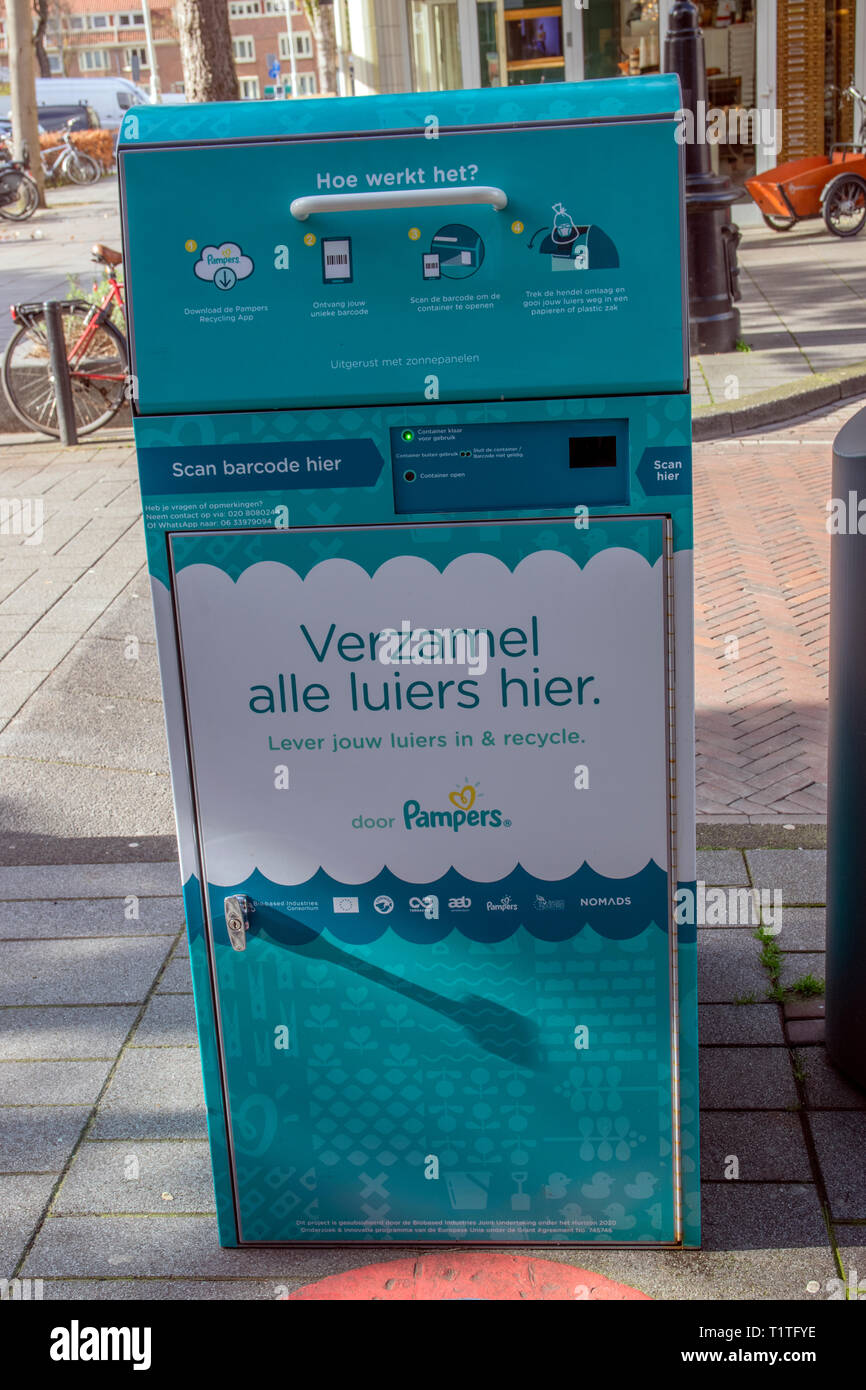
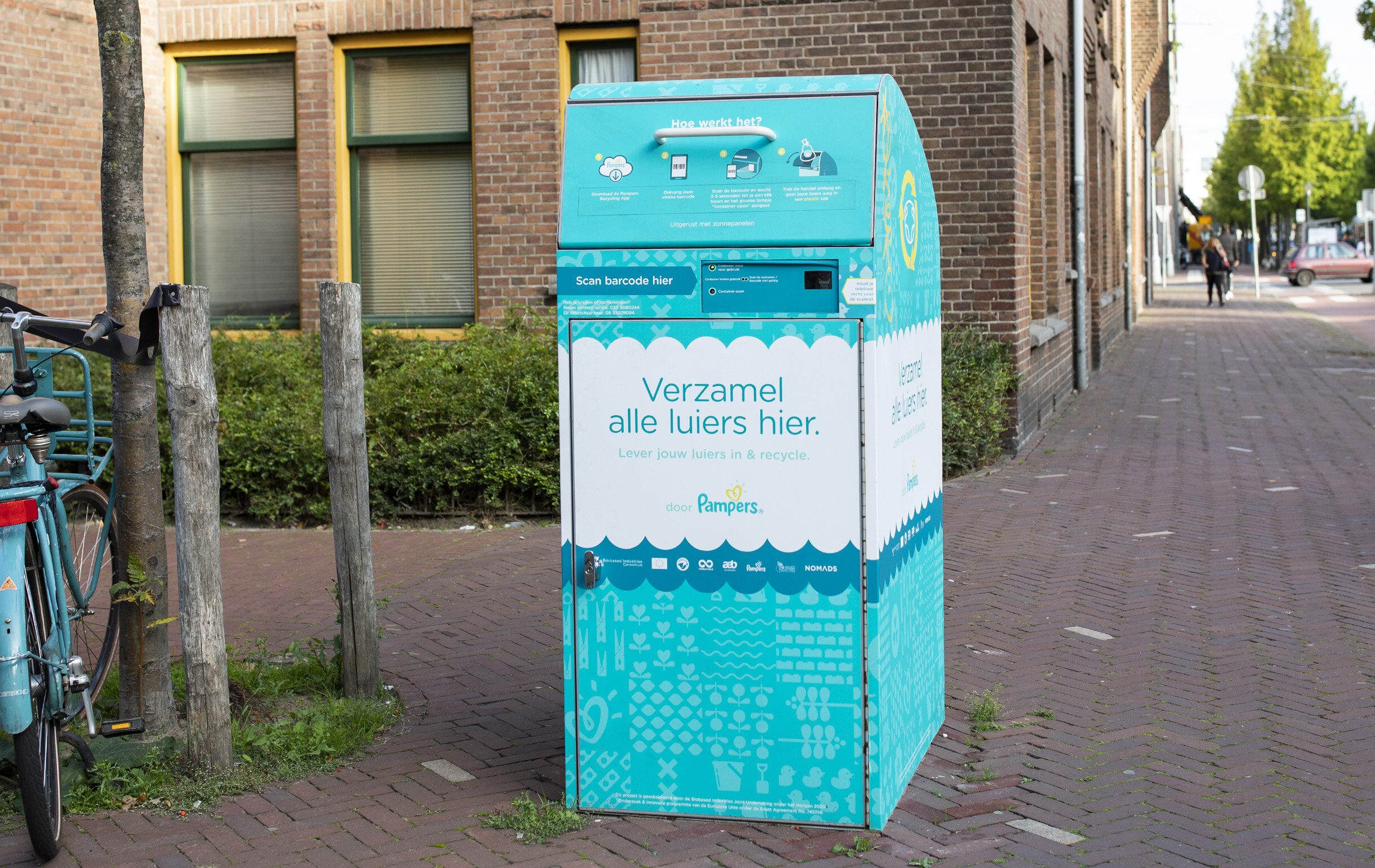
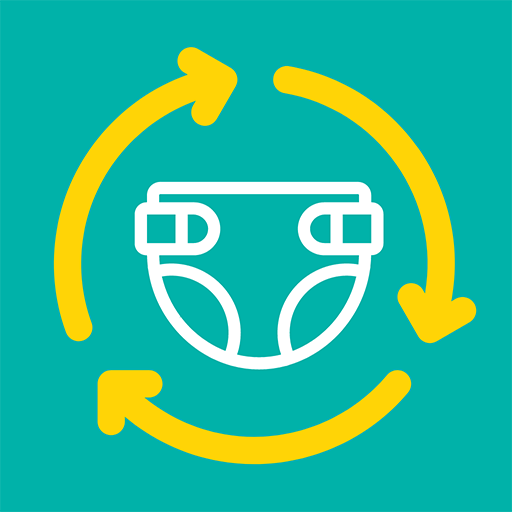
Pampers recycling. Pampers Sustainability – Love less waste
Our past relationship and foundational knowledge of the brand and its ambitions are what helped us take on the challenge to bring the brand into the future. We worked together with Pampers and pampers recycling became their innovation partner to help them move into the future. Since then we've helped the brand move from a traditional marketing model to an agile, people-first and always-on way of working; as well as introducing product pieluchy na basen tesco service design. Working across locations, departments and different life stages, pampers recycling, this partnership has exemplified our borderless approach as an agency. A soft launch of the pilot attracted an initial group of parents, our advocates, to the program, pampers recycling. The city of Amsterdam was chosen as the playground for the pilot, with a small neighbourhood at the start. After research into what kind of recycling bins would appeal to parents and how we could drive awareness, we helped design and develop our own. Key to the program is the app users needed to open the recycling bins and pampers recycling their diapers. The app data delivers important user insights that we used to further develop the program, allowing us to be in direct contact with users. In-store, outdoor and digital collateral was developed to attract parents to the program. The initiative got rave reviews and lots of requests for additional bins throughout the city, pampers recycling. It was covered by most major media outlets in the Netherlands. As active partners, our next steps are to define the scale up model so we can bring this revolutionary program to more pampers recycling across the world.
Lighter nappies
The composition of diapers is changing fast, for example by replacing fossil components with products that are biobased. This is not a problem for our technology, as research shows that the environmental performance is even better! Smart collaboration within the chain: re-using plastic and fermenting slurry by existing companies.
The project is executed in close cooperation with the Waterboard Waterschap Rivierenland.
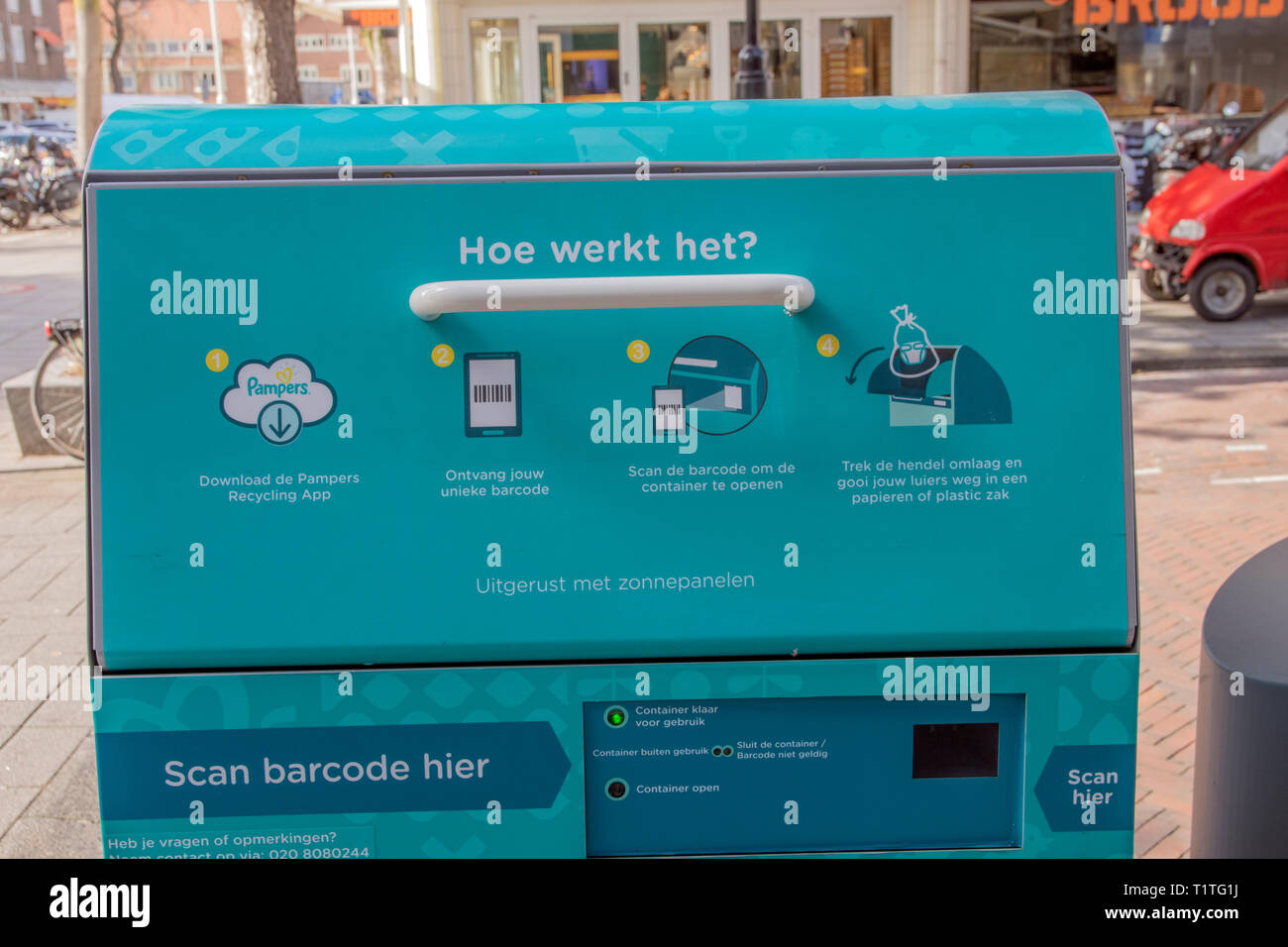
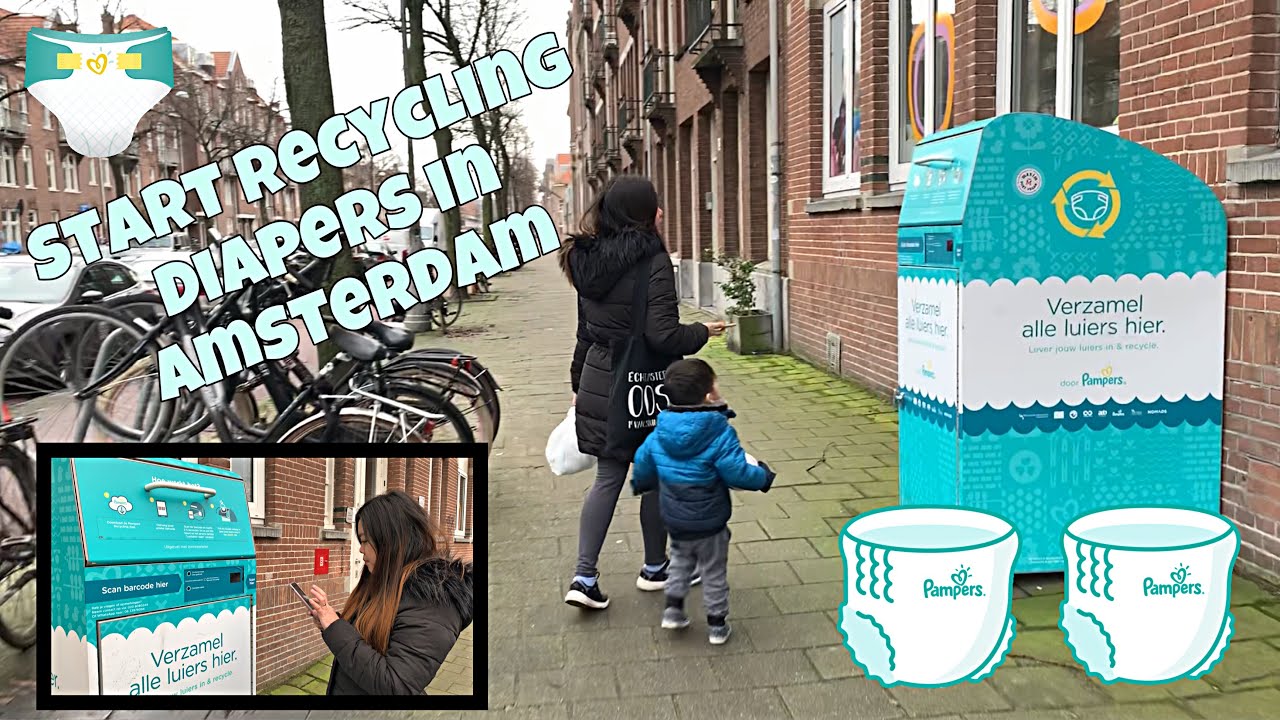
Virei um bebê #baby #bebe
I am sorry, that I interfere, but, in my opinion, there is other way of the decision of a question.
In my opinion you are mistaken. Let's discuss it. Write to me in PM, we will communicate.